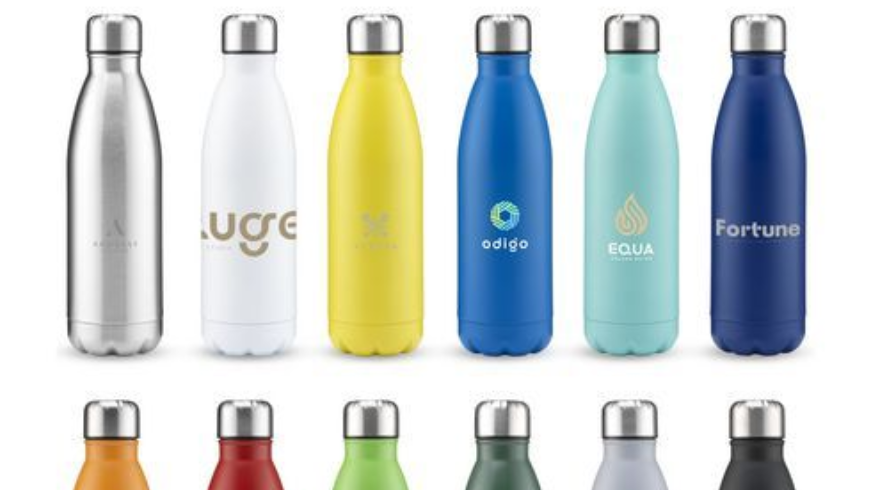YOUR NEXT SUSTAINABLE TRADE SHOW GIVEAWAY – GOTS TOTE BAG
Eco Promotional Products - GOTS


Exhibitions and trade shows are great for displaying brands and the carrier bag has always been a favourite giveaway. This is because it is not only useful for the attendee but also they display the brand as they work around the show pushing more traffic to the stand. It is also a product that can be used after the show and high product retention is what we are after.
WHAT IS A GOTS TEXTILE?
The Global Organic Textile Standard (GOTS) is the worldwide textile processing standard for organic fibres, including eco and social criteria, backed up by independent certification for the whole supply chain. This is the leading authority for which the information below is supplied.
"The aim of the standard is to define world-wide recognised requirements that ensure organic status of textiles, from harvesting of the raw materials, through environmentally and socially responsible manufacturing up to labelling in order to provide a credible assurance to the end consumer." - The Global Organic Textile Standard (GOTS)
This means that for something to be labelled as GOTS certified, it has to meet specific criteria. This criteria covers the processing, manufacturing, packaging, labelling, trading and distribution of all textiles made from at least 70% certified organic fibres.
The Global Organic Textile Standard covers:
PRODUCTION OF FIBRE
Fibres must have organic certification based on a recognised international or national standard (eg. IFOAM family of standards , EEC 834/2007 , USDA NOP ). A textile product carrying the GOTS label grade 'organic' must contain a minimum of 95% certified organic fibres whereas a product with the label grade 'made with organic' must contain a minimum of 70% certified organic fibres.
MANUFACTURING AND PROCESSING
The processing and manufacturing is broken up into the following categories, each with their own specific criteria; Environmental, Technical Quality and Human Toxicity and Social.
Environmental: Every stage of the manufacturing process has to be carefully monitored and meet strict requirements to ensure that the environmental impact is as minimal as possible.
Technical Quality and Human Toxicity: Raw materials, intermediates, final textile products as well as accessories must meet stringent limits regarding unwanted residues.
Social: All processors and manufacturers must meet the critical norms of the International Labour Organisation (ILO). They must have social compliance management to ensure that the social criteria are met at all times.
The GOTS certification system starts with the first processing step in the textile supply chain. The processing of textiles is based on the conversion of fibre into yarn and yarn into fabric. For example, for cotton, ginning is the first processing stage, at which seeds are removed from cotton bolls. Organic fibre cultivation, the initial production, is covered by any international or national organic farming standard that is approved in the IFOAM Family of Standards.
All steps in the processing, manufacturing and trading of organic textiles are covered by GOTS. All must be certified to strict ecological and social criteria in order for the product to carry the GOTS label. In this way, the GOTS puts an end to greenwashing.
THIRD PARTY CERTIFICATION
Organic Textiles are based on organic fibres, GOTS certification covers the processing, manufacturing and trading of organic textiles. The certification of fibre production is on the basis of recognised international standards that are approved in the IFOAM Family of Standards.
On-site inspection and certification of processors, manufacturers and traders is performed by independent Third-Party GOTS accredited Certification Bodies and forms the basis of the GOTS monitoring system. It serves to provide a credible assurance for the integrity of GOTS certified textiles.
GOTS has developed its own accreditation system for this approval process as well as for continuous monitoring of the approved Certification Bodies.
GOTS TOTE BAGS
So back to the exhibition giveaway the tote bag. An example might be the Orissa 140 g/m² GOTS organic cotton tote bag – shown here in natural but available in a range of colours.
The perfect GOTS certified cotton tote bag to give away during any event, conference or to use as a shopping bag for small groceries. The cotton density of 140 g/m² makes the bag sturdy, long-lasting and suitable to carry heavy items the large main compartment. Features 32 cm long handles, making it easy to carry over the shoulder.
Country of origin is INDIA and we recommend a screen print for the branding
Share this blog:





